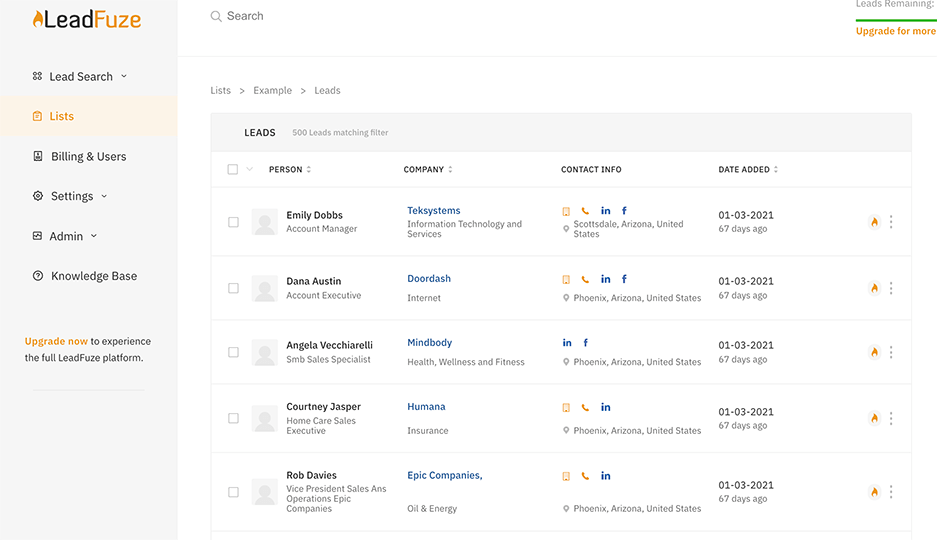If you’ve ever run a business, chances are you’ve had to deal with channel sales at some point. Channel Sales is an important part of your business, and you need to know how to do it well to succeed. In this post, you will learn more about channel sales including the pros and cons of this strategy.
What is Channel Sales
A channel sales strategy is when a company sells their product or service through a third-party channel, such as a retailer, an online marketplace, or a distributor. The company will typically provide the channel partner with marketing and sales resources, and the channel partner will sell the product to customers on the company’s behalf.
The advantages of this strategy include increased reach and exposure to potential customers, as well as increased sales and revenue. The disadvantages include less control over the sales process and the product, as well as lower margins.
There are many benefits to adopting the channel strategy, but it may not be the right move for every company.
How to Tell Whether Channel Sales Strategy is Right For You
When deciding between a direct sales and channel sales team, there are many factors to consider. For example, you will need to consider your product, company, and process. By considering all of these aspects, you can make the right decision for your company.
Channel Sales – How Small Companies Can Use Partners to Grow Their Business
If your company is small and you’re looking to grow, one option is to use partners instead of hiring and training your own sales team. Once you’re larger, you can then bring on board your own reps (or keep using the channel sales strategy if it’s working well).
Product Maturity
If your product is still relatively new, it’s wise to build a strong relationship with your buyers so you can gain feedback, learn what you’re doing right, and what you need to improve.
Sales Process Maturity
Before you can teach other people how to sell your product, you need to learn how to sell your own.
If you’re unsure of your process, you may want to hold off. Take the time to understand your process and how it works. What stages does your sale go through? What causes a customer to purchase? Who’s involved in the decision? How long does a deal normally close? Once you have a better idea of those things, you’ll be in a better place to create a successful strategy for selling through partners.
If your process is complicated, consider streamlining it. If you’re looking to boost your sales and gain confidence, you should consider taking a course in inbound marketing. It can help you refine and streamline your selling strategy.
Channel Sales Model
If your business has more than one location, a “channel” or “multi-location” sales force may be the most efficient. This model eliminates having multiple teams.
Inside sales teams, of course, are another viable option.
B2B Tech Startups – How to Build a Partner Sales Program
If you don’t have a partner program for your product, focus on selling it yourself for now.
According to expert firas raouff, you should wait until you have $20 million in annual revenue before launching your channel partners.
To sell a product, you’ll first need to enlist the help of third party distributors. These individuals or companies will handle the selling process from start to finish.
The Pros and Cons of Chanel Sales Strategy
Channel Sales Pros
Adopting a multi-channel model means your sales team will be smaller, but you’ll gain trust, credibility and be able to quickly experiment with new channels.
Let’s break down each of these individually.
Build-In Trust With Your Channel Partner
If your sales partners are already trusted names within a particular industry, you don’t have to work so hard to establish your brand’s credibility. Your products will be seen as more trustworthy because of their endorsements.
Channel Managers Bring in More Revenue Than Five or Six
A one-channel account manager can increase revenue by 50% or more, while only costing you a fraction of what you’d pay a salesperson. A dedicated account management professional is key to keeping partners happy and motivated.
It’s usually easier to add new partner than it is to add a new employee. Once you’ve created the process and ironed out the bugs, it’s much easier to add more affiliates than it is to add another sales person.
Rapid Testing and Experimentation Channel Partners
A channel partner is a company that you work with to sell your products. They allow you to test new markets, new products, and different marketing tactics.
Channel Sales – Pros and Cons
Partnering with vendors that focus on providing training and support services allows you to close more business without neglecting your current customers.
Channel Sales Cons
While the advantages of a multichannel sales approach are certainly clear, there are a few drawbacks to this strategy.
Less Control Over Sales
Working with partner companies can be risky. Your sales reps might not have much control over how your partner company handles deals.
If your sales team has no say in when deals close, it’s frustrating and can lead to inconsistent and unpredictable sales.
Brand Risk
If you want to maintain a good reputation, it’s important to partner with someone who is known for excellent customer service. A bad reputation by association can damage your own good standing.
Reduced Profits
In exchange for bringing andor closing the sales, your business partners will receive a percentage of the profits. You will make less money on each deal, but each acquisition will be less expensive.
Sales Strategy – Harder to Manage
It can be tough to roll out a major change to your sales strategy, but it can be done. By working with your team members and communicating with them, you can roll out the changes smoothly.
Slower Feedback Cycle Because Your Partners Are Talking to Some Or All of Your Customers
Because your partners talk to some or all of your clients, it will take longer for you to get feedback from them
Your partners may ask you the wrong questions or give you inaccurate data, which can result in you making bad decisions.
Channel Partner Conflict – What Makes a Good One?
When reps and their partners compete for the same clients, things can quickly get ugly. Reps might decide to cut out their partnerships in order to keep all the commission for themselves.
The third parties or channel partners
Here are some of the third parties
1. Resellers
A Reseller is a company that buys products from a manufacturer, and then sells those products to end-users.
In this arrangement, the resellers will buy the products from the suppliers and then sell them to customers.
2. Affiliate Partners
In affiliate marketing, a retailer pays a commission to a website owner, business, or individual for referring customers to their store. This relationship is beneficial to both parties; the store owner gets more exposure while the referrer makes money.
The Amazon.com affiliate marketing program is one of the most popular affiliate programs.
3. Distributors
Product distribution is the process by which companies get their products into the hands of consumers. Some distributors, such as retailers, wholesalers, and other businesses, help to ensure that the product is high quality and meets the needs of the customer.
4. Wholesalers
A wholesaler is a business that buys products in bulk from manufacturers and resells them to other retailers. A sales representative is a person who represents a particular company and promotes the products or services of that business.
Wholesalers typically supply products to other businesses, such as restaurants and retail stores.
5 Value Added Resellers
A value added reseller is a company that sells a product with additional features or software.
A value-added-reseller (VAR) is a company that resells hardware and software products.
6. Independent Retailers
Independent retailers are business owners who run their own retail store, and are not affiliated with any big brands or franchises.
Independent retailers are entrepreneurs who run their own clothing stores, as opposed to being employed by a retail company.
7. Dealers
A dealership is a business that sells a product directly to the consumer. While a retailer offers a wider variety of products and may sell them to the general population, a car dealership specializes in one type of vehicle and usually only sell it to car buyers.
8. Agents
In this job, you are an intermediary who does not have any ownership over the product you are selling. You help facilitate the sale of the product between the seller and the buyer, negotiating the best deal possible.
A realtor is not the owner of a home, but is responsible for overseeing the process of selling a home until a deal is agreed upon and finalized.
9. Consultants
A consultant who helps businesses coordinate their sales efforts with other parties, such as manufacturers and wholesalers, is known as a “channel” or “sales” consultant.
Channel Consultants do not actually sell the products, but play an essential role in making sure that the sales process is functioning smoothly.
Conclusion
Your channel sales partnership will help you expand your market by leveraging the trust that your intermediaries have with their customers. It may be risky, but it will work if you choose trustworthy partners and agree to terms that you will not directly manage the sales process. Good luck!
Need Help Automating Your Sales Prospecting Process?
LeadFuze gives you all the data you need to find ideal leads, including full contact information.
Go through a variety of filters to zero in on the leads you want to reach. This is crazy specific, but you could find all the people that match the following:
- A company in the Financial Services or Banking industry
- Who have more than 10 employees
- That spend money on Adwords
- Who use Hubspot
- Who currently have job openings for marketing help
- With the role of HR Manager
- That has only been in this role for less than 1 year
Want to help contribute to future articles? Have data-backed and tactical advice to share? I’d love to hear from you!
We have over 60,000 monthly readers that would love to see it! Contact us and let's discuss your ideas!

